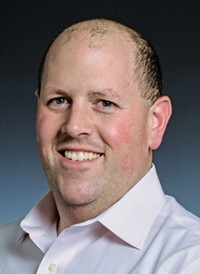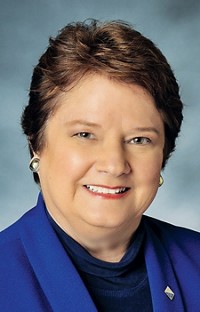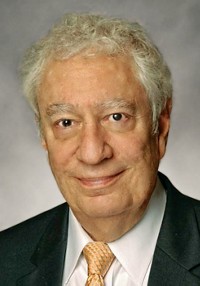Advertisement
Grab your lab coat. Let's get started
Welcome!
Welcome!
Create an account below to get 6 C&EN articles per month, receive newsletters and more - all free.
It seems this is your first time logging in online. Please enter the following information to continue.
As an ACS member you automatically get access to this site. All we need is few more details to create your reading experience.
Not you? Sign in with a different account.
Not you? Sign in with a different account.
ERROR 1
ERROR 1
ERROR 2
ERROR 2
ERROR 2
ERROR 2
ERROR 2
Password and Confirm password must match.
If you have an ACS member number, please enter it here so we can link this account to your membership. (optional)
ERROR 2
ACS values your privacy. By submitting your information, you are gaining access to C&EN and subscribing to our weekly newsletter. We use the information you provide to make your reading experience better, and we will never sell your data to third party members.
Policy
Advocating For A Reviving Economy
by William F. Carroll Jr., Chair, Committee on Public Affairs & Public Relations
September 6, 2010
| A version of this story appeared in
Volume 88, Issue 36

The recent Member Satisfaction Survey reinforced what we already knew: ACS members look to the society for employment resources throughout their careers. In a previous Comment, “Keeping Pace With Member Needs,” ACS board member Diane Grob Schmidt described how ACS has worked aggressively to augment the set of career development tools available to members at www.acs.org/careers (C&EN, Jan. 11, page 40). There are classes, networking opportunities, résumé and interviewing aids, even career counselors—and the materials keep improving.
Those materials are designed to help each member compete more effectively in the job market, and they are important. But as the shapes of the chemical and pharmaceutical industries have changed in the wake of the tough economic environment of the past two years, we’ve changed our overall approach to employment issues as well.
Let’s not kid ourselves. ACS cannot create jobs in the U.S. chemical and pharmaceutical industries. We can’t walk into a chief executive officer’s office and change behavior by demanding that he or she hire more chemists or stop building laboratories or plants in other countries. But we are not without tools.
ACS is recognized nationally as an advocate for chemists and chemistry. In the past few years, we and many others worked to pass the America Competes Act—comprehensive legislation to increase the number of highly qualified science teachers and funding of research in the physical sciences. And we’ve been successful in our efforts. But while the U.S. spends upward of $100 billion a year of government money to fund research of all kinds, we rely largely on goodwill and good luck to bring innovations derived from that research to the marketplace.
Recently, ACS has reached out to a number of other organizations that are interested in the business and employment environment. Our common goal is to encourage job creation by making the U.S. the most welcoming place in the world for new and growing science-based businesses.
Our partners are organizations that believe in small business as the engine of job and wealth creation. Of the chemists leaving school who enter jobs in industry, about half go to small businesses (fewer than 500 employees), so the issue is as important to chemistry as it is to other parts of the economy.
What kind of mechanisms could improve the climate for small business? Examples include business tax rates that are competitive with those in countries to which we lose companies: research tax credits and preferential treatment for investment in new research or manufacturing facilities; accelerated depreciation; high-speed Internet; improved availability of credit; expeditious and reliable invention protection; and things that impact the cost of doing business or the physical or intellectual infrastructure that supports its growth.
We are not the only ones who realize how far behind the curve we’ve placed ourselves in this country. New York Times columnist Thomas L. Friedman advocates for start-ups—not bailouts: “Good jobs—in bulk—don’t come from government. They come from risk-takers starting businesses.” A recent study by Tim Kane of the Kauffman Foundation concludes that “job growth is driven … by start-up firms that grow organically.”
Andrew S. Grove, the former CEO of Intel, adds that it’s not just start-ups, it’s scale-ups. “We need to rebuild our industrial commons. … Without scaling, we don’t just lose jobs, we lose our hold on new technologies,” he says. And the Washington Post editorialized, “The U.S. will have to more efficiently retrain workers, update infrastructure and convert scientific advances into profitable goods and better industrial processes.”
Maybe most succinctly, patent judge Paul R. Michel and entrepreneur Henry R. Nothhaft describe the need to revitalize and streamline our intellectual property process in a New York Times op-ed, “Inventing Our Way Out of Joblessness.” They write, “Restoring the patent office to full functionality would create … at least 675,000 and as many as 2.25 million jobs. … The price would be roughly $660 per job.”
It’s not so important that those numbers are exactly correct. What is undeniable is that government policies create the business and employment environment and can power that organic growth. I’m not talking about picking winners and losers in terms of industries, technologies, or products; I’m talking about conditions that nurture competitiveness on a microscale but are biased in favor of domestic development on a macroscale.
If the environment is right, research leads to innovation, entrepreneurs start companies, investors take risks, and people are employed to create the next generation of beneficial goods and services. The system seems out of gas right now, but with $100 billion of public funds spent annually for research, and trillions of dollars on the sidelines as cash in the hands of investors and retained earnings in corporations, fuel exists.
The ACS Office of Public Affairs, with input from numerous committees and divisions, has begun to take this issue on. We and our allies will make the case to legislators and the Obama Administration that the U.S. can no longer win by default; we must compete—not just for the best and brightest talent, but for the companies and industries that will create the 21st century. If we once again make the U.S. the best place in the world to do science work, our country will benefit and so will ACS members.
Views expressed on this page are those of the author and not necessarily those of ACS.





Join the conversation
Contact the reporter
Submit a Letter to the Editor for publication
Engage with us on Twitter